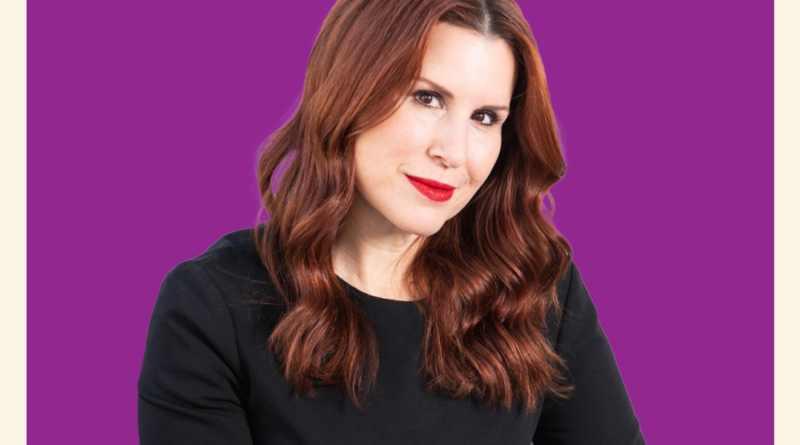One way to avoid losing your job to A.I.: Ensuring your personal brand doesn’t get ‘dusty'
Fortune Connect is a new learning community for the next generation of purpose-driven leaders. We provide you with the tools and allies you need to accelerate your career, enter the C-suite, and have a positive impact on business. Join live events with Fortune 500 leaders and build your network.
As generative A.I. continues to become more intelligent, capable, and independent, human workers may be left increasingly concerned for their own livelihoods. Aliza Licht, a PR and marketing pro of several decades, has a pitch for what could be a key differentiator: A strong, well-maintained personal brand that proves your value.
Especially with the proliferation of tools like ChatGPT, Licht told Fortune’s Peter Vanham this week on Fortune Connect, “having a personal brand is no longer a choice.” It’s a requirement for staying afloat.
Licht would know—she has over 25 years of experience in communications and marketing, and was the once anonymous, well-known voice behind “DKNY PR Girl” on social media while she ran public relations at Donna Karan New York for 17 of those years. When she revealed herself, she encouraged fans to follow along on her personal account, which eventually helped her leverage a successful career after leaving DKNY in 2016. She’s since founded multimedia brand and consultancy “Leave Your Mark,” consulting for a variety of well-known brands—and wrote career advice book, Leave Your Mark: Land Your Dream Job. Kill It in Your Career. Rock Social Media.
She wouldn’t have been able to do it all without her personal brand—something she says is even more important in today’s precarious economy. Letting your brand “get dusty,” she says, can be dangerous, “especially with A.I. right now; it’s a very precarious time.”
To say nothing of the hundreds of thousands of layoffs this year alone and the perennial threat of a recession, A.I. has workers even more worried about losing their jobs. Despite CEOs’ assurances that A.I. will be an asset for cutting down on grunt work rather than a reason to automate human jobs, the outlook could nonetheless look grim as the machines become more and more capable. Four thousand tech jobs have already been eliminated thanks to A.I., a recent report by Challenger, Gray & Christmas found. Though most white-collar jobs are hardly set to disappear, many will “dwindle hugely,” Joseph Fuller, a professor of management at Harvard Business School, told Fortune earlier this month.
A.I. doesn’t care about tenure or track record; that’s why, if you’ve been in a role for a while—even if not two decades like Licht—conducting a self-assessment on your personal brand can be crucial.
Most people don’t stay in one place long enough anymore for their identity to fuse with their company, Licht said. “But when they do, they get really comfortable in their job, really good at it, and start to coast,” she said. “And the danger of coasting is letting your personal brand get dusty.”
Dusting off your personal brand 101
Not everyone will be happy to hear Licht’s advice. Today, alongside the proliferation of social media, the idea of creating a personal brand has morphed from a fringe concept from the ’90s to a non-negotiable for accelerating your career. Business magnates such as Richard Branson and Mark Cuban have each cultivated personal brands that often precede their business accomplishments.
But more leaders and workers have become anti-personal brand. Former Meta COO Sheryl Sandberg once said that brands are meant for products, not people. Ilana Gershon, who examined the digital economy in her book Down and Out in the New Economy, told BBC that creating a personal brand means always being on. Even Tom Peters, the business management writer who coined the term for Fast Company in 1997, recently told the New York Times that some people have taken their personal brand to extremes.
People mistakenly taking personal branding to be cringy or self-involved is an outdated perception, Licht said. “Having a personal brand isn’t about becoming famous,” she said. “It’s about aligning self-reflection with public perception, and making sure that you get the credit you deserve for what you’re great at.”
Everyone has some version of a personal brand already; it’s just their reputation, which can precede them if they aren’t attentive. What’s key is honing a strong one that’s true to who you are. “A strong personal brand means that your name gets dropped in rooms you’re not in,” Licht said. Just as important as cultivating the personal brand is ensuring that it doesn’t erode or fade over time.
You can’t afford to let your personal brand collect dust
To polish their brand off, Licht recommends workers question whether they’re being as innovative as you can be in their role. Given how innovative and groundbreaking some A.I. can be, she said human ingenuity and innovation is particularly vital, “especially in the economy we now work in.”
A successful personal brand must rely on, first and foremost, a successful work product. Your reputation will falter without a strong track history behind it. Workers who have gotten comfortable in their roles must ask themselves a series of questions, Licht said.
She added that you should ask yourself: “When’s the last time I learned something new? When’s the last time I brought a new idea to a company? When’s the last time I raised my hand and said, ‘I realized no one is doing this thing, and actually I have some time right now, and I’d love to take it on’?” After all, she said, a successful personal brand must first and foremost rely on a successful work product. Any reputation, artificial or human, will falter without the support of a strong track record.


